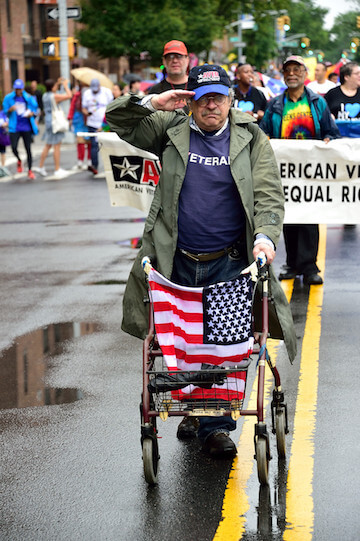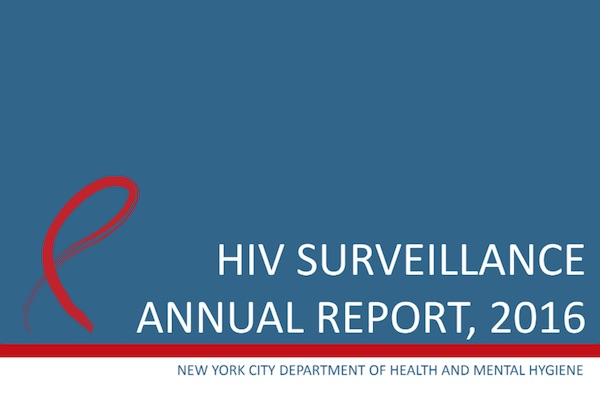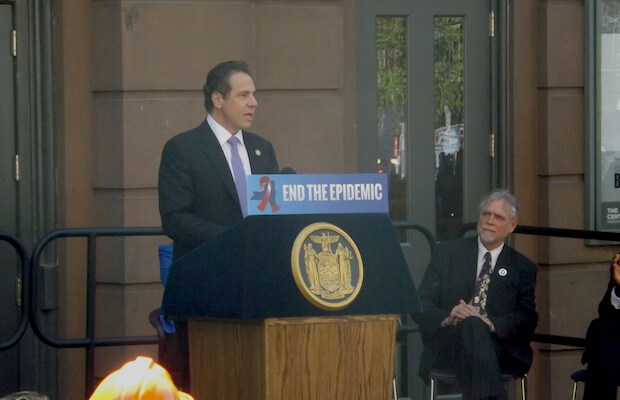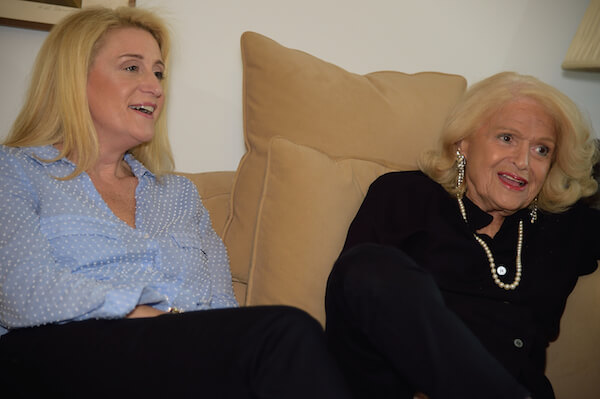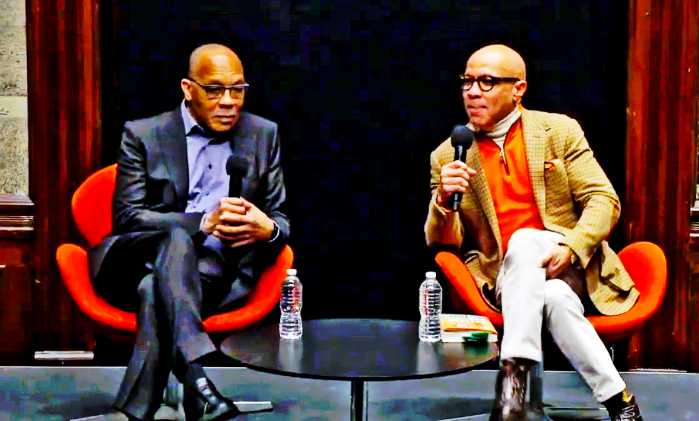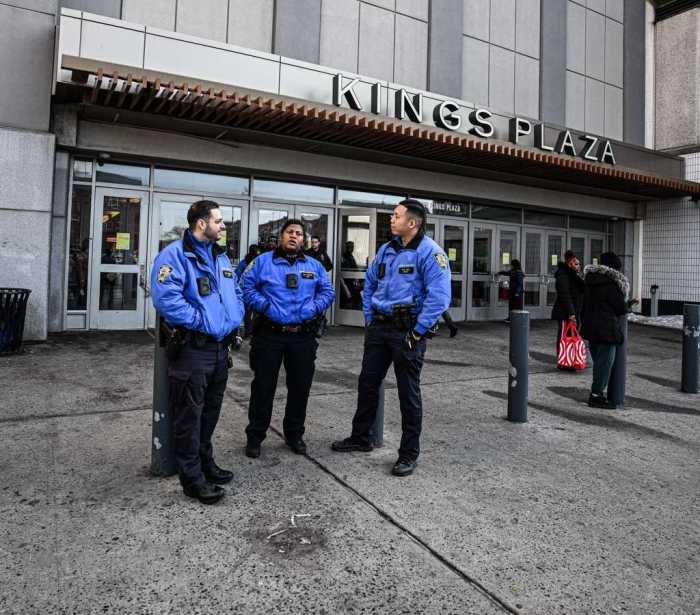Denny Meyer leads off the American Veterans for Equal Rights contingent in last year’s Queens Pride Parade. | DONNA ACETO
BY DUNCAN OSBORNE | The New York City chapter of American Veterans for Equal Rights (AVER) has marched in every Pride Parade since the chapter was founded in 2002, but it may not march this year after the group that produces the annual event required all contingents to get insurance coverage to participate.
“Basically, we decided it’s becoming a nightmare,” said Denny Meyer, who founded and currently heads the New York City AVER chapter.
For the first time, Heritage of Pride (HOP), which produces New York City’s annual Pride parade, festival, and related events, required all groups in this year’s march to supply a certificate of insurance after they register. Previously, only sponsors and larger groups in the parade had to have insurance. Vendors at the festival are also required to have insurance and other documentation.
Military veterans, LGBTQ Democrats say new requirement might keep them from marching
James Fallarino, an HOP spokesperson, told Gay City News that the organization was working with groups that are confronted with the requirement for the first time to either get insurance or to find some other solution.
“As instances of terrorism have increased, we’ve had to tighten up this requirement,” Fallarino said. “We’ve been much more stringent and required it of all groups.”
Meyer said he contacted two insurance brokers who queried insurance companies they work with. He was told that they would not issue a policy to his group. Had they been willing to write a policy, Meyer was told it would have cost $800 to $900 for the parade, a prohibitive price for his small chapter.
“Both insurance brokers got back to me and they said they don’t want to touch it,” he said.
AVER also needs a car for the event and is struggling to find one for the parade, which steps off on June 25 this year and runs from 36th Street and Fifth Avenue to the West Village. Between the insurance and the lack of a car, AVER will likely not participate this year.
“That’s probably 90 percent sure,” Meyer said.
The Jim Owles Liberal Democratic Club is also struggling with the insurance requirement and complaining that HOP is being insufficiently responsive after saying it would assist the political group in obtaining insurance.
“It’s an outrage,” said Allen Roskoff, the club’s founder and president. “It’s become so corporate that you need insurance to march on a public street… We tell them we’re a small group. We don’t know how to do it.”
Fallarino told Gay City News that HOP is working effectively with contingents that are dealing with the insurance requirement for the first time and that they have had no complaints.
“There are a variety of different options,” Fallarino said. “We prefer to handle it on a case-by-case basis… We spend a lot of time every year working with the groups.”
Gay City News only found the two groups that were having a difficult time meeting the insurance requirement. For larger groups that have existing liability policies, getting insurance coverage for the parade is a simple matter of buying an inexpensive or no cost rider that covers them for the event.
“We routinely extend our existing liability insurance for off-site events and did the same for this year’s (and prior years’) NYC Pride March(es),” Wendy Stark, the executive director at the Callen-Lorde Community Health Center, wrote in an email. “We incur no additional cost for this.”
Gay Men’s Health Crisis produced a certificate of insurance that covers it for the festival and that was deemed sufficient for the parade as well.
“GMHC was not asked to buy insurance,” Eric Sawyer, a spokesperson for the AIDS services group, told Gay City News. “What they did require for this year was a certificate of insurance for the Pride festival.”
In addition to concerns about terrorism, Fallarino said that the city, HOP’s own legal counsel, and “a number of different entities” had advised the organization to require all participants to have insurance.
Meyer said the lawyers were likely the problem.
“I get the impression they let lawyers in and they screwed it up,” he said.


